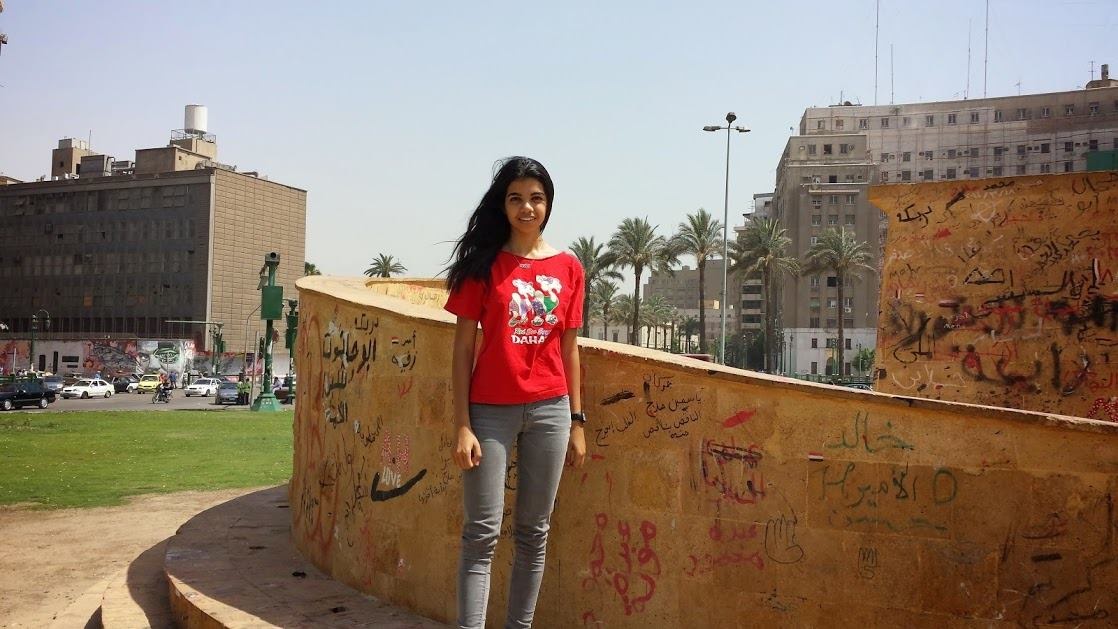
When Noor Hamdy ’18 left her home in San Diego to begin a new journey at Scripps, she knew she wanted to take classes in the College’s interdisciplinary Middle East and North Africa studies and Arabic programs. While Hamdy has explored these fields and more in her time at Scripps, she also discovered a passion for tackling problems closer to home and social work that shaped the course of her future plans.
This passion was ignited by her work outside the classroom in the Inland Empire, a vast network of communities east of Los Angeles. Against the politically charged backdrop of fall 2016, Hamdy and three other Claremont Colleges students founded the 5C Refugee Advocacy Network (RAN) to provide an outlet for those wanting to make a tangible difference in the lives of local refugee families. “It began with me and three others sitting around a table weekly discussing how we could bring change to national narratives, particularly of immigrants, refugees, and Muslims during the increase in Islamophobic and xenophobic comments of the 2016 presidential campaigns,” she recalls.
From there, Hamdy and her peers determined the ways in which college students might assist refugees in the community. They eventually found a space in the local mosque to set up a free English tutoring service. The proudest accomplishment of her college career, according to Hamdy, is that “since then, over 50 volunteers have signed up, and we run the service from 4 to 8 p.m., Monday through Thursday.” In addition to offering tutoring services, RAN also provides resources for legal support and connects student advocates directly with individual families. On campus, RAN holds fundraisers and raises awareness around issues that refugees face.
Now, as she completes her final semester at Scripps, it is clear that Hamdy’s personal and academic work has made an impact on the surrounding community. Her thesis, titled “Middle Eastern Refugee Resource Acquisition and Integration in Pomona Valley: Policy Recommendations and Ethnographic Research,” explores the experience of Syrian and Iraqi refugees in the Inland Empire through both a political and anthropological lens. “I am planning on writing a policy proposal regarding the ineffective resettlement policies which fail to meet the needs of refugees, including language acquisition, financial support, and mental health aid,” she explains. In addition, her thesis explores “how refugees think of their belonging in their new communities, particularly their interactions with informal refugee help groups, like those formed in Claremont.”
Because of the relevance and timeliness of her research topic, Hamdy led a workshop titled “Understanding Refugee Resettlement and Integration in Pomona Valley” as part of the Humanities Institute series. Each semester, the Institute creates programming based on a topic within the humanities; spring 2018’s topic was “Exclusive Nationalisms: Global Migration and Immigration.” Hamdy’s workshop included a discussion on refugee resettlement policies, existing gaps in public policy and social services, and the ways in which volunteerism can aid in contending with unmet needs. “What I took away from [the discussion] is that the policy implications of my research are significant and helped people understand the need for Syrian refugees to learn the English language on their own time and for free.”
With a clear passion for helping others, Hamdy is interested in pursuing social work after graduation and plans to earn a master’s degree. Excited for the path that lies ahead, she credits much of her personal and academic growth to the community of friends and professors who have supported and challenged her over the past four years. “Through classes, but more often discussions [outside the classroom], my fellow classmates, friends, and I have grown in our social skills, political consciousness, and literacy in academics as well as life! I have had wonderful professors in my majors, and from them, I have learned how to hold my own arguments, question any and all assumptions I carried about various interdisciplinary subjects, and critically think in a way that I was unable to do before arriving at Scripps. Most importantly, I learned to defend my thoughts and believe in my convictions.”

